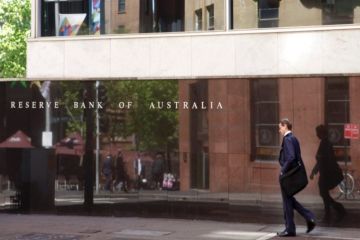E-sports gaming entrepreneurs go on $143 million property spree

When a landmark restaurant in McMahons Point settled recently for $6.055 million to esports gaming entrepreneur Jack Wu, it was just the tip of a $143 million property spree that extends across Sydney.
From the Coles shopping centre site at Greenacre for $40.5 million to an 1886 building in the CBD for $20 million, and a boarding house at Westmead for $2.5 million, Wu and his family’s corporate interests have been avid investors in an array of commercial and industrial properties in the past two years alone.

But missing from the shopping list is a family home for Wu to replace the sub-penthouse in Aqualand’s Blue at Lavender Bay development he sold a week before last Christmas for $9 million, amid plans to buy something with space for his three young children.
Wu, 33, and his older brother Michael, 39, are the sons of vitamin moguls Jina Chen and Alex Wu, founders of Nature’s Care who, in 2019, debuted on the Australian Financial Review Rich List 200 with an estimated worth of $758 million after they sold a majority stake in the vitamin brand.
Within months of ranking on the rich list, Chen and Wu made headlines by setting a Lavender Bay house price record of $16.988 million amid plans to downsize from their Northern Beaches estate in Ingleside, which they bought in 2015 for $7.7 million.
Last year the brothers made a name for themselves among Sydney’s online entrepreneurs when they bought into Hive Gaming, an online platform that helps budding esport athletes and game creators monetise their efforts.

But Jack’s business interests extend beyond esports to include the Clutch Capital boutique development company he runs with Nick Ross. Earlier this year Clutch bought a row of five houses in Rose Bay for $22.7 million opposite the Rose Bay golf club, to be redeveloped into a boutique block of apartments.
CI Australia’s Nick Lowry, the selling agent behind the McMahons Point landmark restaurant building, said the attraction of commercial property is that traditionally the rental yield is about double that of residential investments of a similar worth.
Lowry added that values in the commercial sector tend to lag a few months behind the residential market, but have been buoyed in recent months by a lack of freehold commercial property investments for sale, and strong buyer demand.
We thought you might like
States
Capital Cities
Capital Cities - Rentals
Popular Areas
Allhomes
More










